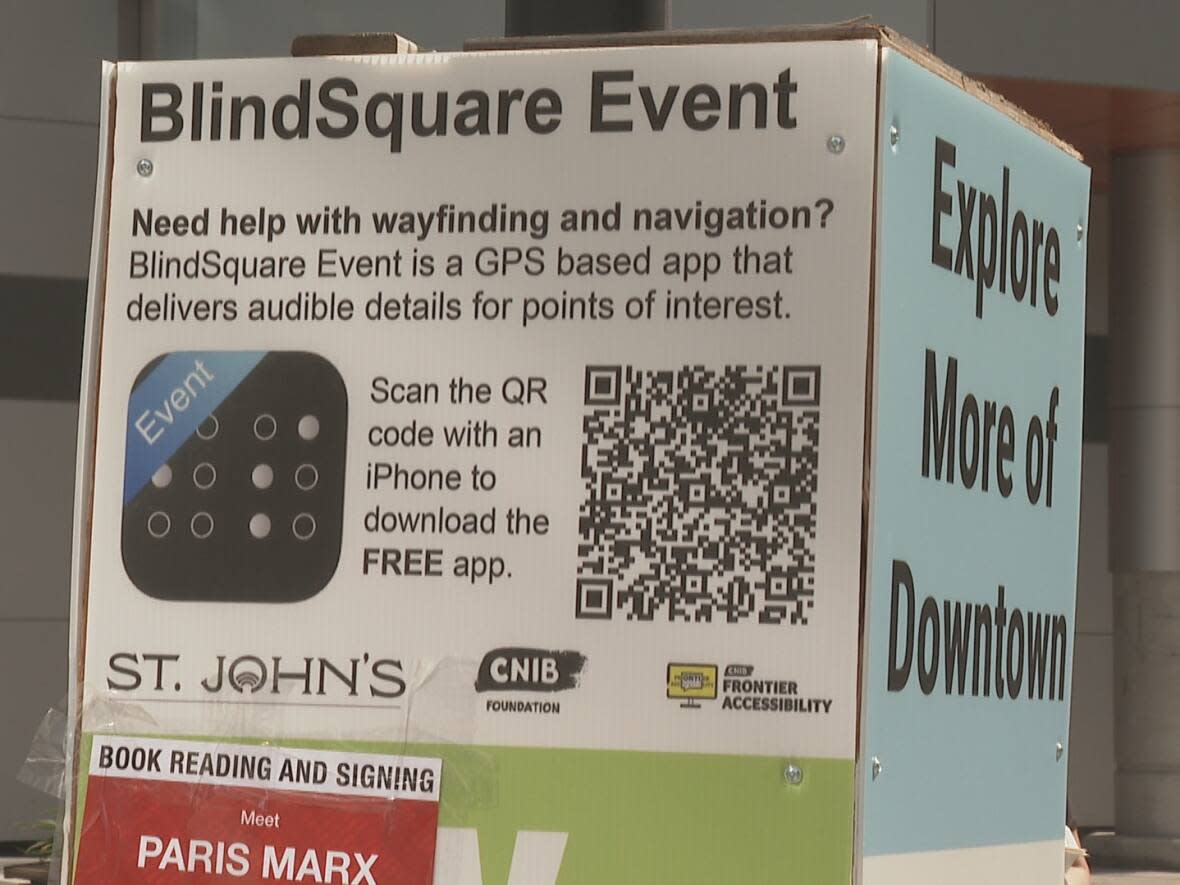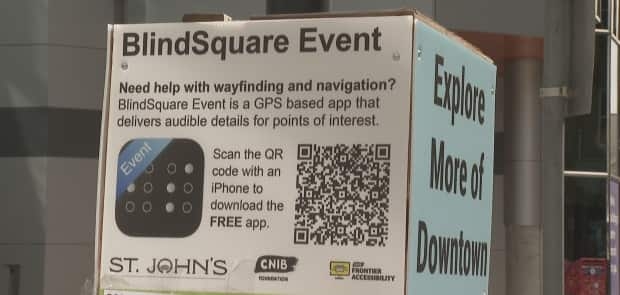New accessibility app for St. John's pedestrian mall excludes some with vision loss, advocate says


The City of St. John's has launched a pilot project to make the downtown pedestrian mall inclusive for people who are blind or partly blind — but a disability justice advocate says the way the city has implemented the project excludes her and many others.
The city has partnered with the Canadian National Institute for the Blind (CNIB) and Frontier Accessibility to launch BlindSquare, a navigation app that allows people with low vision or blindness to navigate the mall safely.
The app uses GPS technology to show the location of things like businesses, sidewalk curb cuts and public seating. It also gives directions based on orientation and allows for custom markers, allowing users to make their way confidently around the mall.
The app is used in other provinces to help people access public transit, parks and more.
Duane Morgan, vice-president of Atlantic Canada for the CNIB and a user of the app himself, says it's a game changer for getting around the area.
"The most important piece is that it gives more independence to a person with sight loss. So I don't necessarily need someone to go with me to give me all that information about what's around me and where I am," Morgan said Wednesday.

"It's giving me a lot of information that I might not necessarily be able to pick up as I walk along because I don't see signage or other indicators."
Morgan said the CNIB will work with the city to do more testing and give feedback on how the project worked, or where else it could be used.
St. John's Coun. Debbie Hanlon, the city's lead on accessibility, said the project has been in the works for two years and that it's exciting to launch the app.
"The city wants everyone to enjoy what we have, and we don't want to exclude any portion of the population," Hanlon said Wednesday.
"We're all about trying to find out other ways that we can make it more inclusive, because we want everyone to come down and enjoy, not just the pedestrian mall, we want everyone to enjoy the city."
Android users excluded from BlindSquare
However, the app's current setup doesn't include all mall goers — as the app is only available on Apple devices.
That's problematic for people like Anne Malone, a disability justice advocate who is partially sighted and uses an Android phone.
"I actually use an Android because of my sight loss … I prefer to use Android phones because I often use magnification of text as an accommodation," Malone told CBC News Tuesday.
Malone said she also uses an Android for its larger screen, which makes magnification easier.

She says an iPhone with a screen comparable to what she already uses would cost about three times the price of her current phone — something she believes she shouldn't have to pay to be able to traverse the pedestrian mall safely.
"Any kind of new technology that is going to be used as an accommodation to navigate public spaces should be very accessible to the people who have to use that technology," Malone said.
"I don't think that any person with any kind of disability should be out of pocket one penny to access a public space that everybody else accesses at no cost to them."
Malone also wishes there was more consultation by the city with blind or partially sighted people outside of the CNIB, and hopes the lack of consultation doesn't set a precedent for future accessibility measures.
"We rarely, if ever, get consulted with by the city. And I think that's problematic," she said.
"It would have been really beneficial to include the end users in the conversation … that didn't happen."
Asked about the project excluding Android users, Hanlon said it did come up during the research process and the city was disappointed about the exclusion. However, she's been told an Android version of the app is expected in the future.

Morgan said the CNIB is also pushing for the app to be released on other platforms.
Hanlon added that consultation did happen with the CNIB during the two-year process, and acknowledged the city welcomes suggestions from the public about how to be more accessible.
"We know that this is only the start of a long journey that we're going to work together to make it more accessible for everyone in the city," she said.
"But the best information comes from the users themselves."

 Yahoo Movies
Yahoo Movies 
